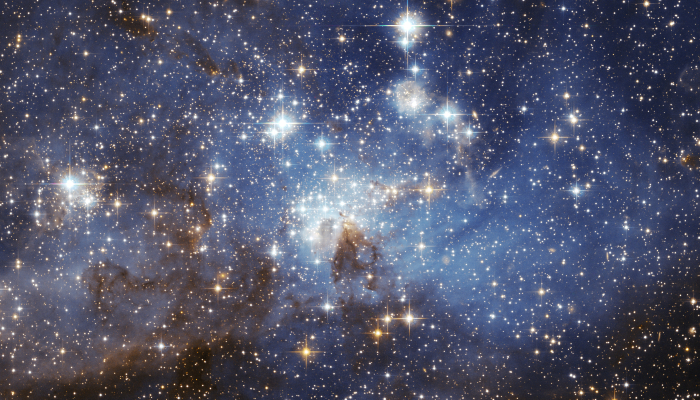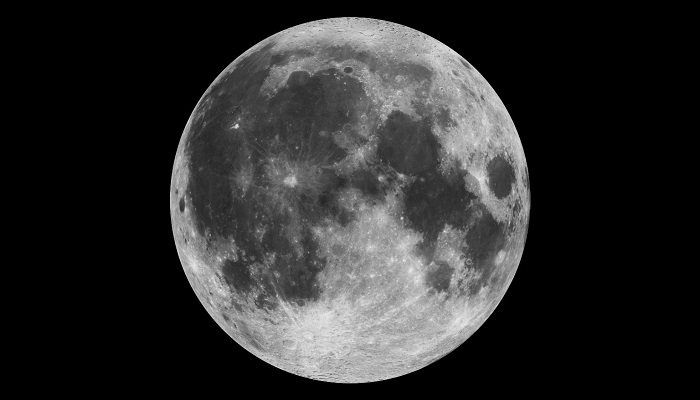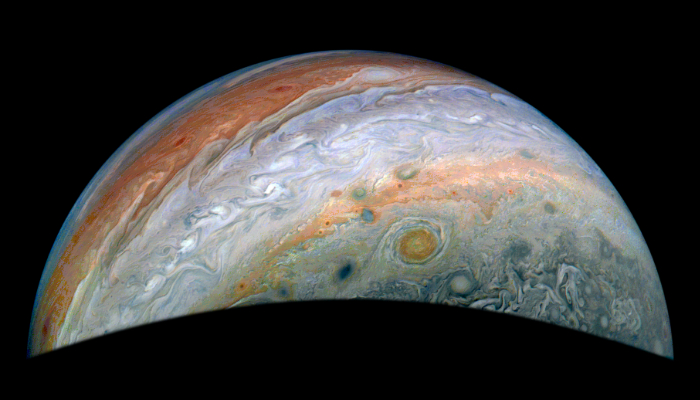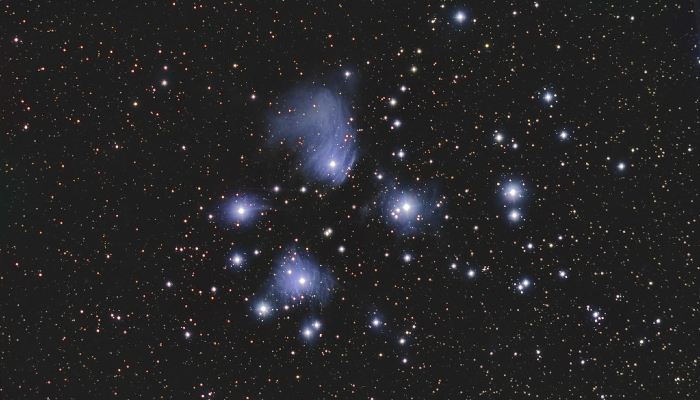Stars
Where can I find information about stars in space?
(Years 5-8)

Image: Stars in the sky by European Space Agency (ESA/Hubble) on Wikimedia Commons.
Entry last updated: 10/07/25
Introduction
Stars are huge bodies of hot gasses usually made up of helium and hydrogen. Stars can be of different sizes, colours, brightness and temperatures. The Sun is our home star. It is at the centre of our solar system. The gravity of the Sun keeps the planets in orbit around it.
Star words
Here is the meaning of some words you will come across when you begin your study of stars.
Astronomy: The study of the universe and objects such as the moon, sun, planets, stars, and all that exists in space.
Constellations: Clusters or groups of stars that look like the shape of an object, animal or person in the sky. Pegasus, Virgo, and Pleiades are examples of constellations.
Nebula: A giant cloud of dust and gas in space. Some nebulae could lead to the beginning of a new star.
North Star: Also known as Pole Star and Polaris. Sailors used it in the Northern Hemisphere to help them navigate. The star is part of the Ursa Minor constellation.
Shooting stars: They look like stars that move quickly across the sky. They are actually meteors or small pieces of dust, rock or debris from space that burn up as they move into Earth's atmosphere.
Southern Cross constellation: A group of four or five bright stars in the shape of a cross or diamond in the Southern Hemisphere.
Stargazing: Looking up at the stars or using a telescope to see stars and other objects in space. It could be a hobby or part of a scientific study.
Supernova: This is an explosion of a supergiant star. It happens when there is a change in the core or centre of a star.
Facts and pictures
Use the websites below to find quick facts, images, and interesting questions and answers about stars.
Ask an Astronomer is part of Cool Cosmos, a NASA education website. It has lots of information about astronomy and objects in space.
Go down the page to the section Stars.
Explore questions such as what are constellations, why stars twinkle or what stars are made of.
Tips: A website’s address (URL) can give you a hint about how reliable it is. Look for addresses in the results that include .gov or .edu in the URL. These are quality sites from overseas government or educational organisations.
Fact Monster covers a variety of subjects like the world, people, science, math, language help and tools such as an atlas, dictionary etc which are at a primary level.
Enter the search word 'stars' in the search box.
Explore the links Constellations and Stars, Stars Grouped by Size and Famous Star Gazers.
Tips: Websites that have .com or .co in the address can have good information, but you need to assess how reliable it is. Check the About us link on the website, if you can find one. That can tell you what the company’s mission and values are.
Articles and videos
These websites have reliable information on stars and other topics about space.
Britannica is part of EPIC, a selection of databases put together for schools in Aotearoa New Zealand. You can choose to search at the primary, middle or secondary level.
Start with the Primary level and search for the keyword 'stars'.
Select star (astronomy) to find sections about Classifying Stars and Other Types of Stars.
You can choose Reading Level 2 from the top of the page for more detailed information.
Tips: To use the EPIC resources, you need a password from your school librarian. Or chat with one of our AnyQuestions librarians to help you online. Some EPIC databases may also be available through your public library.
Funded by the New Zealand Government, this website has articles and videos on science, technology and engineering for students and teachers. You can search by topic, concept or search feature.
Enter the keyword 'stars' into the search box.
Use the filters to narrow by Types or Levels.
Explore the image of the Matariki (Pleiades) star cluster or watch the video on Star life cycles.
Remember to select Show more results at the end of the page to see more information on this topic.
Tips: You may notice some content on sea stars and starfish. This is because the search word 'star' will bring up all content with the word 'star' in it. Remember to only look at content related to stars in space.
This site belongs to the National Aeronautics and Space Administration (NASA) in the United States. It has lots of information on science topics, space news, and space information and technology.
Go to the tab Science Topics and select Universe.
From the menu on the right find the topic Stars.
This article covers Star Formation and other information like White Dwarf stars and Neutron Stars.
Explore the links under Related Content to see videos and get more info.
Go to the tab called Learners to find a link called Space Place.
This site is great for primary students. Use the keyword 'stars' to find All about the Sun and How Does Our Sun Compare With Other Stars and other useful links.
Tips: Many web pages have links to further information or other recommended sites. Following these links is a great way to find out more.
Stars in the Southern Hemisphere
The websites below have information on the stars visible in the Southern Hemisphere and Aotearoa New Zealand.
Te Ara: The Encyclopedia of New Zealand
Te Ara is an excellent starting point for all questions about New Zealand Aotearoa. If we look down to the bottom of the page we can see that the website belongs to the Ministry for Culture & Heritage, so the information is well-researched and reliable.
Try the search word 'stars'.
Go to the article on Southern Stars to read about the Southern Cross.
Select Seasonal Stars to read about the Orion, Scorpius and Pleiades constellations that can be seen from Aotearoa.
Tips: We like sites like this because they’re reliable. You can tell because of their web address – they have either .govt or .ac, meaning they are from government or educational organisations. They’re also New Zealand sites, so relevant for us.
New Zealand Astronomy directory
This website supported by VENZ (Visitor Experience NZ) has lists of astronomy attractions, planetarium shows, guided tours of the southern skies, and local astronomical groups.
Go to The New Zealand sky to read about Māori Astronomy and Modern astronomy.
Books
You will find lots of books in your public library and school library on stars. Here are some titles to start your search:
Explore the stars by Emma Huddleston.
Shooting stars by Jane P Gardner.
The sun and stars by Giles Sparrow.
Supernovas by Ruth Owen.
Constellations by Frances Purslow.
SCIS no: 5438246
Topics covered
Related content

Space exploration
Where can I find information about space exploration?

Space
Where can I find information about space?

Moon
Where can I find information about the moon?

Planets
Where can I find information about the different planets in our solar system?

Matariki
Where can I find information about Matariki?

Matariki celebrations
Discover resources related to Matariki and how it is celebrated.

Significance of Matariki
Discover resources related to Matariki.
